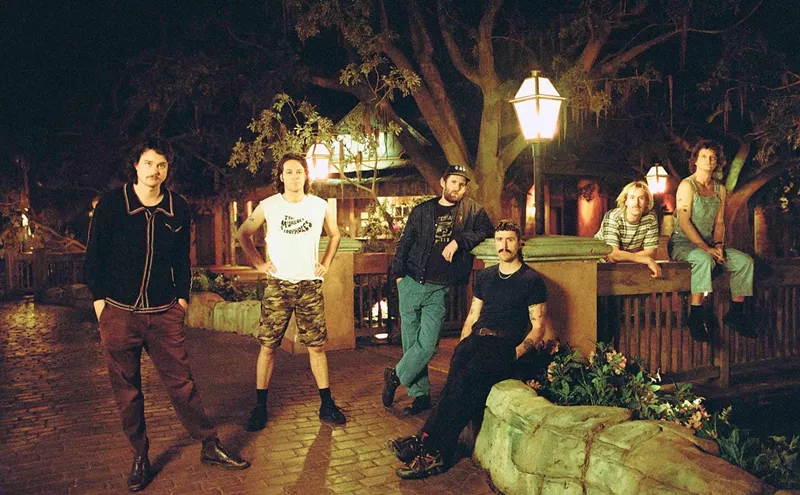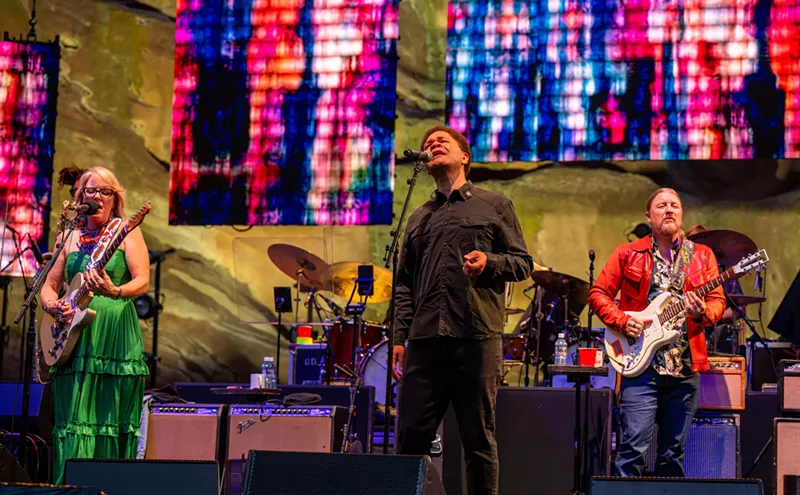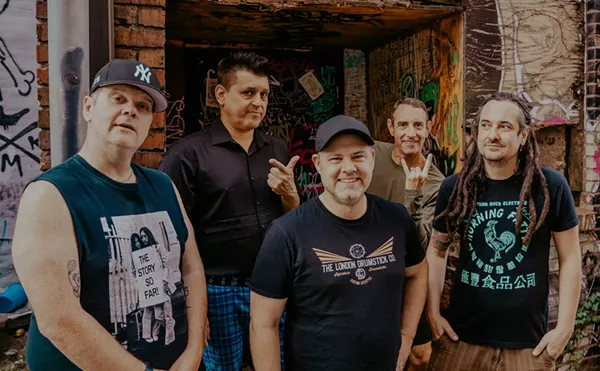There's nothing new in that, of course: Judging by the release dates of the discs in his bin, Jimi Hendrix has been a lot busier since rigor mortis set in than he ever was when he could flex all his joints. Besides, Still I Rise has the blessing of Shakur's mom, Afeni, who in an essay that accompanies the album writes that her goal is "to put out a body of Tupac's work and hope that we can do justice to what my son had envisioned, created and invested his blood, sweat, tears, and ultimately his life." (She's the one who mentioned "body" of work, not me.) But that doesn't mean there's anything revelatory on the platter, which was recorded in 1996, between Shakur's release from prison following a sexual-assault conviction and his September murder. "Letter to the President" has some moments of effective paranoia: "I guess it's 'cuz we're black that we're targets," Shakur raps -- and since both he and Khadafi, a member of the Outlawz, died before the year was out, maybe he's got a point. Many listeners will also feel a little tabloidy jolt listening to tracks such as "The Good Die Young" and "Teardrops and Closed Caskets," even though the words have more to do with self-fulfilling prophecy than prescience. But his familiar themes (he alternately bemoans the thug life and celebrates it) feel played out, and the music is so familiar that many folks will be convinced they've already heard it many, many times before. That's not really Shakur's fault, though: It's hard to grow as an artist when you're in the ground. Or maybe it's not.
Still, Shakur is lucky by comparison with the Notorious one, if only because his efforts were more complete than were the bits and pieces cobbled together for Born Again. To accompany B.I.G.'s leftover rhymes, some of which are notably dated (not too many MCs are making references to Bobby Brown these days), a slew of producers, led by the magnanimous Sean "Puffy" Combs, lay down beats whose contemporaneity is more than a bit jarring; it's the equivalent of colorizing a black-and-white film. And that's not to mention the huge number of guest rappers who turn up -- enough to stock five seasons' worth of "very special" Moesha episodes. A few of these cameos, like Lil' Kim's, make sense given Biggie's history, but come on -- what the hell is Eminem doing on the album? The answer, ladies and gents, is padding. The material gets stretched to the snapping point; on some tracks, Mr. Smalls hardly appears at all. Compared to Puff Daddy, Natalie Cole is an amateur.
Don't assume, though, that a shortage of vault fodder means you've heard the last "new" Notorious B.I.G. or 2pac discs. Hip-hop is a medium founded on recycling, and that legacy carries with it something akin to immortality. Old rappers don't die; they just get sampled less often.












